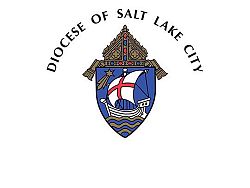Diocesan clergy walk with fearful immigrants
SALT LAKE CITY — As the Trump administration continues to build immigration policies that emphasize detaining and deporting people living in the United States without proper legal documentation, Catholic clergy in the Diocese of Salt Lake City are working to reassure and help their congregations.
“People are afraid,” said Father Rogelio Felix-Rosas, administrator of St. Thomas Aquinas Parish in Cache County.
“People are afraid,” agreed Deacon Guillermo Mendez, who ministers at the Cathedral of the Madeleine in Salt Lake City.
“People are afraid,” echoed Father Christopher Gray, pastor of St. Mary of the Assumption Parish in Park City, who with Fr. Felix-Rosas was instrumental in creating the diocesan Guide for Persons with Immigration Needs, an online resource guide published Jan. 23 and updated Feb. 5.
In his message at the front of the booklet, Bishop Oscar A. Solis expressed his solidarity with the faithful “during these moments of uncertainty. As your diocesan bishop, I want you to know that my presence, along with that of all the members of the clergy, remains constant and active.”
One way that the clergy is walking with those in need is by presenting information to them, said Fr. Felix-Rosas, who also is the diocesan liaison for the Hispanic community and Hispanic priests. He has been holding workshops to educate people about their rights and responsibilities, and has distributed the diocesan guide, available in English and Spanish at https://dioslc.org/. It may be printed and distributed without charge.
Attendance at Spanish-language events at his parish decreased during the first week the immigration crackdown was announced, he said, but now attendance is normal, he said. “We cannot say that people are calm or not afraid, but our job is to invite them to trust and experience the presence of the Lord who does not leave us alone. He is not a ghost; he is in the present storm.”
In Park City, Fr. Gray hasn’t seen a decrease in the number of people at the parish’s Spanish-language events, but he has worked to reach out to the community to accompany them. Like Fr. Felix-Rosas, Fr. Gray has been offering workshops on immigration concerns; these included handing out copies of the diocesan guide, which contains contact information for and a brief description of many organizations in Utah that provide services to immigrants.
In addition, St. Mary of the Assumption Parish is offering resources through its charity program, which was established last January. Through the program, people can receive help not only from the parish but also with referrals for assistance with legal and immigration services, among other aid.
At the cathedral, Deacon Mendez has seen a significant drop in attendance at Spanish-language events. “I notice some of the families … the dad doesn’t want to go out, he doesn’t want to go to work, he doesn’t want to come to the church, he doesn’t want to go out from his house because he’s really scared,” he said.
Some families have asked him for recommendations saying that they are good people who attend church, he said, which he has written because “they’re really scared,” so scared that “if they need to stay home on Sundays they’re going to do that,” they told him.
Like the priests, Deacon Mendez has distributed copies of the diocesan guide, but he needs more resources to help address the need, he said.
Additional resources are needed, Fr. Felix-Rosas agreed; at his parish, a group of five parishioners is working to create a fundraiser to help people who might need help paying for a lawyer or paperwork.
St. Thomas Aquinas Parish also has a charity account that provides emergency support for those who need help with groceries, rent or gas cards; this may be called upon to help people with immigration needs, he said.
All the faithful are called to help with this matter, Bishop Solis said. “This is our sacred responsibility: to love and care for our neighbors. Catholic Social Teaching requires that the faithful be obedient to the law while maintaining the dignity of each person. The immigration situation in our country is complex and the root cause of the issue must also be studied further. But we cannot remain indifferent, blind and deaf to the sufferings of those in need, especially the undocumented and the refugees,” he wrote in the diocesan guide.
© Copyright 2025 The Diocese of Salt Lake City. All rights reserved.


Stay Connected With Us